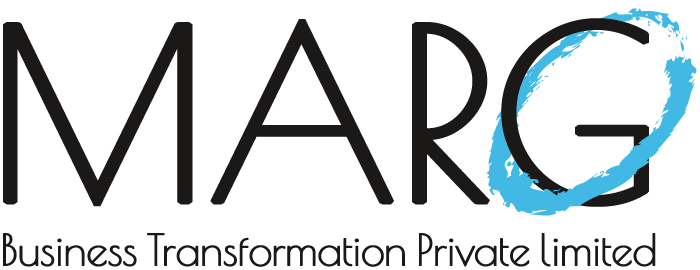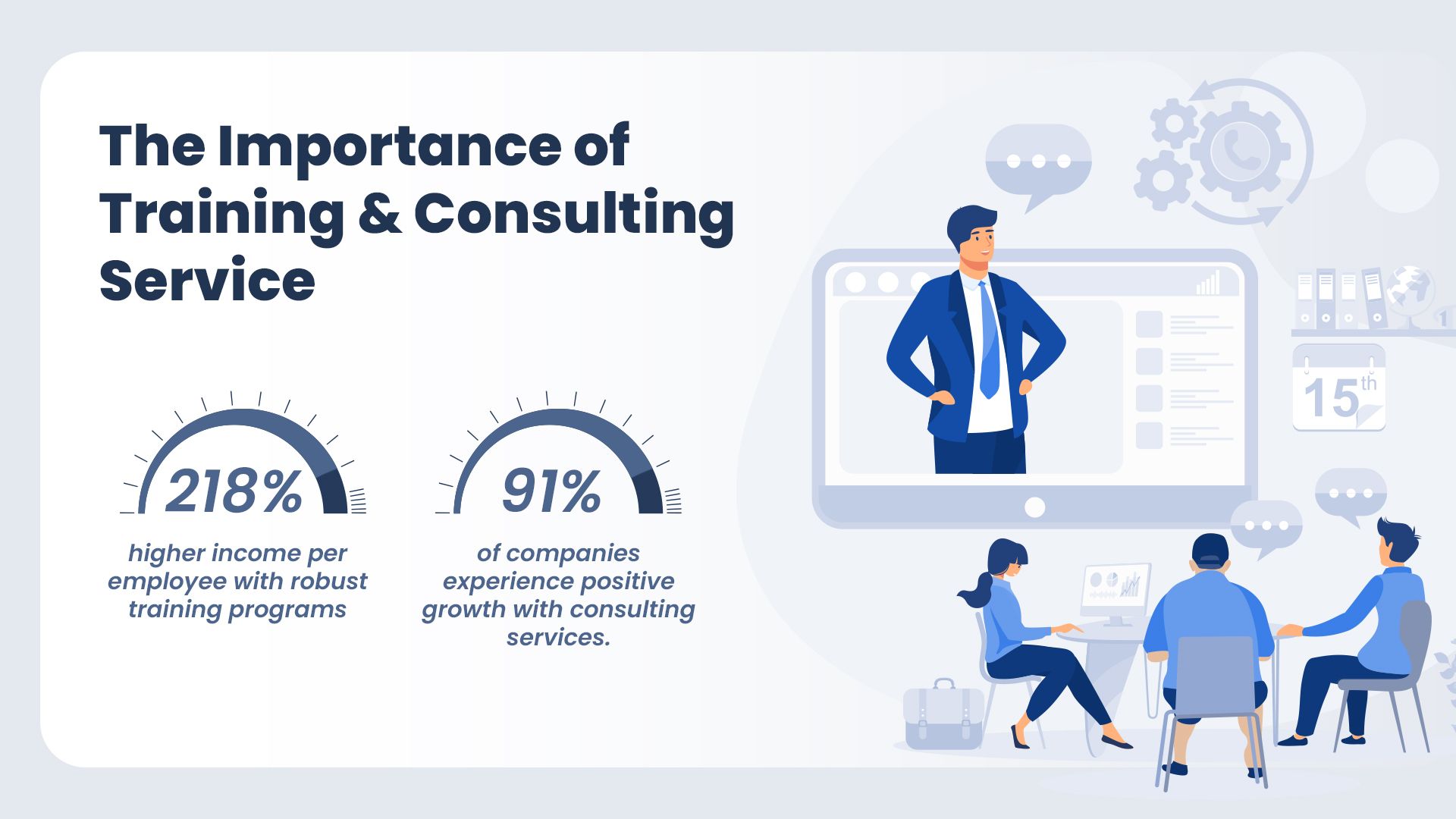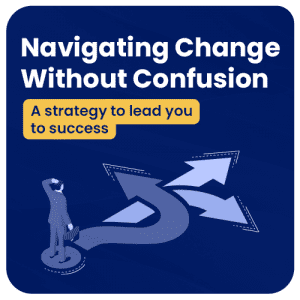Training and consulting are two prominent services that address these needs, each with a unique approach. Research indicates that companies that offer comprehensive training programs have a 218% higher income per employee than those that don’t. Consulting services contribute significantly to business growth, with 91% of companies reporting that engaging with consultants positively impacted their organization.
While both have distinct advantages, more organizations are now exploring partnerships with training consulting companies to combine structured learning with strategic guidance, ensuring long-term transformation and competitive advantage.
Training: Empowering Through Skill Development
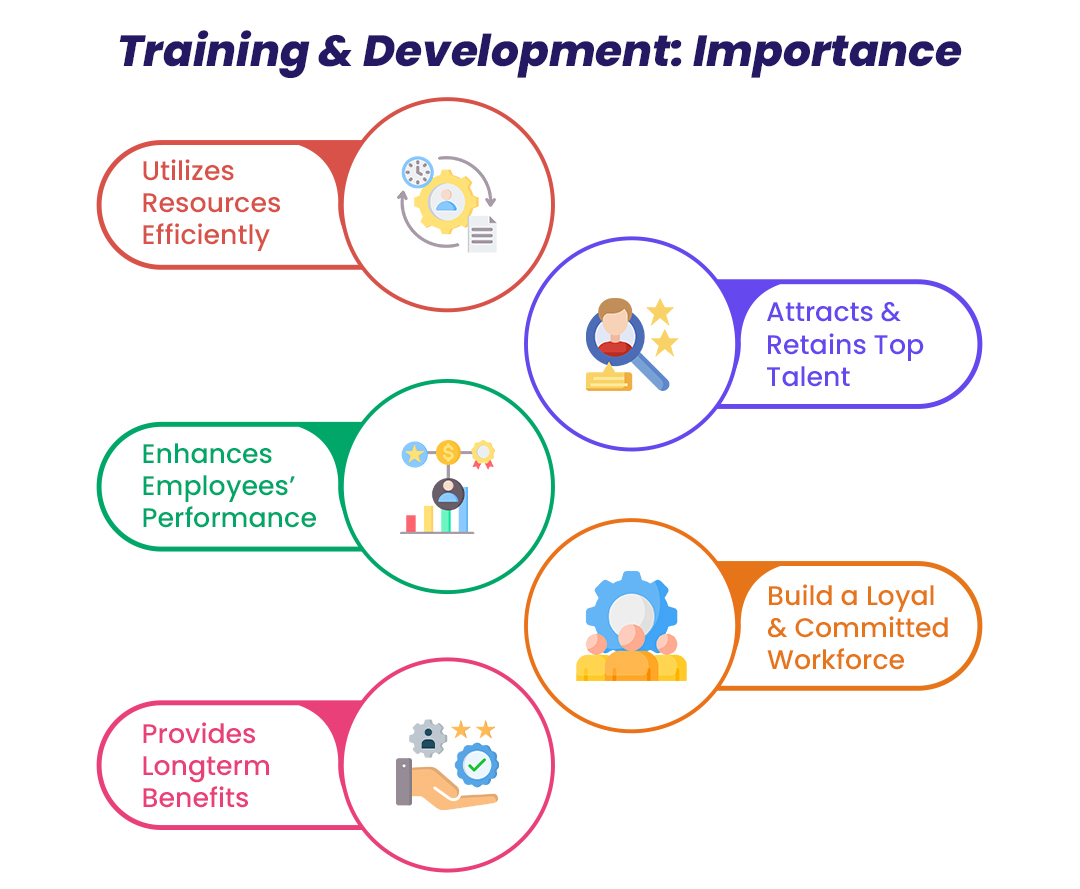
Training programs focus on equipping employees with the necessary skills and knowledge to excel in their roles. These programs are structured to provide hands-on learning experiences, enabling individuals to acquire new competencies or improve existing ones.
Key Aspects of Training:
1. Skill Enhancement: Practical and application-based learning.
2. Structured Learning: Follows a defined curriculum.
3. Continuous Development: Regular updates to keep pace with industry changes.
Making the Right Choice: Training vs. Consulting
The decision between training and consulting depends on the nature of the issue at hand. If skill gaps are hindering performance, targeted training sessions are beneficial. However, if there are
systemic issues needing in-depth analysis, consulting services are more appropriate. Here’s a breakdown to help you choose the right approach:
In many scenarios, integrating training and consulting can provide a holistic approach to business transformation. Consultants can identify issues and propose solutions, while training ensures that employees are equipped to implement these solutions effectively. This is why organizations increasingly partner with training consulting companies that offer expertise in both areas.

Consulting: Offering Strategic Solutions
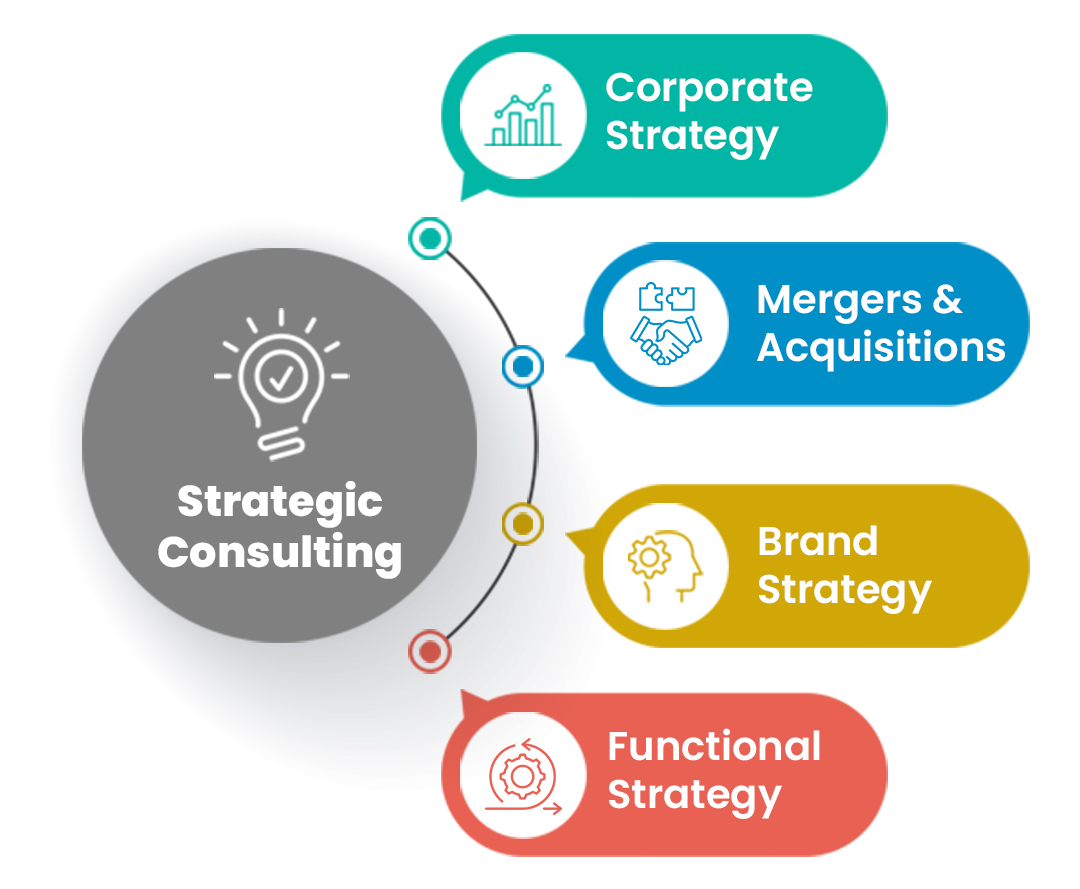
The decision between training and consulting depends on the nature of the issue at hand. If skill gaps are hindering performance, targeted training sessions are beneficial. However, if there are systemic issues needing in-depth analysis, consulting services are more appropriate. Here’s a breakdown to help you choose the right approach: In many scenarios, integrating training and consulting can provide a holistic approach to business transformation. Consultants can identify issues and propose solutions, while training ensures that employees are equipped to implement these solutions effectively.
Why Businesses Need Both Training and Consulting
Organizations often face challenges that can’t be solved by training or consulting alone. Training improves employee competencies, but without strategic guidance, those skills may not be aligned with larger business goals. Similarly, consulting provides direction but requires skilled employees to implement recommendations.
This is where training consulting companies create value—by combining both services into an integrated approach. They ensure that organizations don’t just upskill their workforce but also have the right strategy to achieve sustainable business growth.
Key Benefits of Partnering with Training Consulting Companies
Choosing the right partner can accelerate organizational growth. Leading training consulting companies offer:
· Tailored Solutions: Programs customized to industry, culture, and business objectives.
· Sustainable Growth: Skill development backed by strategic alignment.
· Measurable Outcomes: Clear performance metrics to track ROI.
· Holistic Transformation: Addressing both individual development and organizational challenges.
These benefits demonstrate how training and consulting, when delivered together, can drive measurable improvements in performance, innovation, and employee engagement.
Future of Training and Consulting in India
With rapid digital transformation, remote work, and evolving business models, the demand for training consulting companies is only expected to grow. Organizations will need partners who can combine technology-enabled training with forward-looking consulting solutions. From AI-driven learning tools to data-backed business strategy, the future lies in integrated services that prepare companies for both immediate challenges and long-term opportunities.
The Role of Training Consulting Companies in Business Transformation
In today’s competitive environment, businesses need more than just short-term fixes—they need sustainable transformation strategies. Training consulting companies play a pivotal role by bridging the gap between skills development and strategic problem-solving. These companies design tailored programs that align with organizational goals, ensuring that employees not only acquire technical expertise but also learn how to apply it in real-world business contexts.
By offering both training modules and consulting insights, such firms become long-term partners in growth, guiding organizations through change management, leadership development, and cultural transformation.
Marg Business Transformation: Excellence in Training and Consulting
Understanding the differences between training and consulting helps businesses address their needs more accurately. While training focuses on skill development, consulting provides strategic solutions to complex problems. By choosing the right service, organizations can drive transformation and achieve their strategic goals.
Marg Business Transformation is celebrated for its exceptional training and consulting services, earning numerous awards for delivering impactful business results. With over 16+ years of experience and a Pan-India presence, Marg excels in change management, cultural transformation, business strategy, and team development. Our commitment to navigating complex business environments has built unwavering trust with our clients, partners, and team members.
If your organization is ready to unlock its full potential, partner with MARG Business Transformation. From customized training programs to strategic consulting solutions, we help businesses achieve measurable results and sustainable growth. Connect with us today to start your transformation journey.
FAQs
1. What do training consulting companies do?
Training consulting companies provide a combination of skill development programs and strategic business consulting. They help organizations upskill employees while offering expert guidance to solve complex challenges and drive business growth.
2. Why should my organization partner with a training consulting company?
Partnering with a training consulting company ensures that employee development aligns with business strategy. They provide customized solutions that improve performance, collaboration, and long-term organizational success.
3. How can training consulting companies help with cultural transformation?
Training consulting companies design programs that not only enhance skills but also foster a positive workplace culture. Through targeted training and strategic consulting, they help teams embrace change, communicate effectively, and collaborate efficiently.
4. What industries benefit most from training consulting companies?
Virtually all industries can benefit, including IT, manufacturing, healthcare, finance, and services. Training consulting companies offer scalable solutions that address industry-specific challenges while improving workforce capability and organizational strategy.
